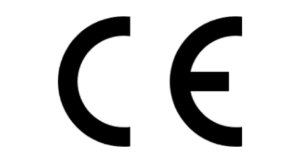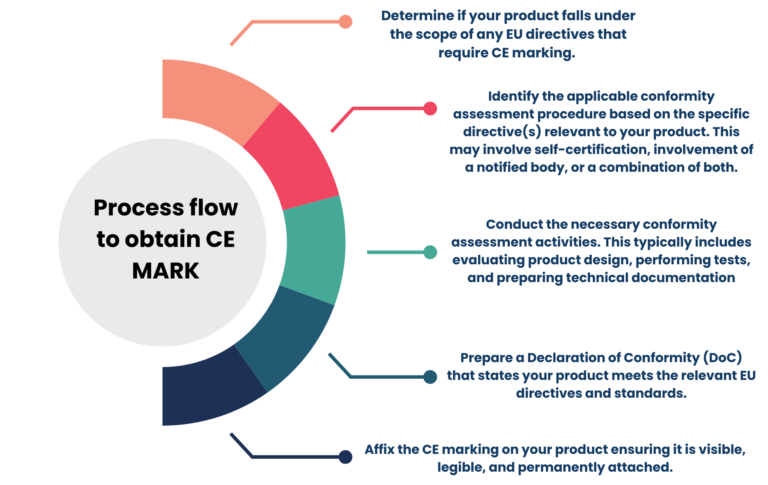CE Mark Approval
Ensure compliance with EU Compliance including Telecommunication Conformity Assessment, EMC Directive, Low Voltage Directive (2014/35/EU), Medical Devices Directive (93/42/EEC), Machinery Directive (2006/42/EC), Radio Equipment Directive, and RoHS Directive

What is CE Approval
CE marking is a mandatory conformity mark required for a wide variety of products intended for trade in the European Union. It signifies that your products comply with rigorous EU product safety directives and meet the necessary standards for consumer safety and environmental protection.
Importance of CE Marking
But why is CE approval important?
CE approval is crucial for products entering the EU market because it demonstrates compliance with stringent safety and quality standards. It is not just a mark; it is a testament to the manufacturer’s commitment to producing goods that adhere to the highest levels of safety, ensuring the protection of consumers and the environment.
EU Directives for CE Mark Certification
CE certification mark that we see on most of the Electronics and IT products is one of the biggest certification mark. Under the European Union agreement all member countries have constituted back in 1992 a common law to govern the electronics product regulations.
to obtain CE Certification the products must be tested and certified under the:
EMI/EMC Directive:
The regulation is applicable to all electronic products that have the ability to produce electromagnetic interference or whose performance can be influenced by such interference.
Low Voltage Directive (LVD-Safety) :
It pertains to devices that function within a specified voltage range of 50 to 1000 VAC or 75 to 1500 VDC.
Radio Equipment Directive (RED) :
Applies to refers to an electrical or electronic device designed to intentionally transmit and/or receive radio waves for the purpose of communication.
Restriction of Hazardous Substances (RoHS) Directive :
Pertains to electrical and electronic equipment and addresses the limitation of hazardous substance usage.
Waste Electrical Electronic Equipment (WEEE) Directive :
Is a regulatory framework that addresses the management and disposal of electronic waste.
Product Groups For Which CE Approval Is Mandatory
CE marking is an essential requirement across more than 20 diverse product categories, ranging from electrical equipment, construction materials and gas appliances to toys, measuring instruments. Detailed lists outlining CE marking obligations for various products can be found on the European Commission’s website.
It’s imperative to adhere to these guidelines, as incorrectly applying CE marking to non-mandatory items can lead to accusations of deception and legal repercussions for the company.
How to obtain CE Marking
To obtain the CE mark certification, which signifies compliance with European Union (EU) product safety standards, you can follow these general steps:

The CE marking should be accompanied by relevant product information, such as the manufacturer’s name or identification number. Also, keep the technical documentation, DoC, and other relevant records for a specified period, as required by the applicable directives.
Related Services
Click here to know about the Approval Process for the Canadian Market
Click here to know about the SRCC certifications
Click here to know everything about CE Marking
Click here to know everything about E Mark
Click here to know everything about Type Approval for Fiji
Click here to know everything about Type Approval for Hong Kong
Click here to know everything about India Approvals
Click here to know everything about PSE Mark
Click here to know everything about MIC Certificate
Click here to know everything about Type Approval for Malaysia
Click here to know everything about Type Approval for Russia
Click here to know everything about Type Approval for Saudi Arabia
Click here to know everything about Type Approval for South Africa
Click here to know everything about Type Approval for Singapore
Click here to know everything about Type Approval for South America
Click here to know everything about Type Approval for South Korea
Click here to know everything about NCC Certificate
Click here to know everything about BSMI Mark
Click here to know everything about Type Approval for USA
Technical Documentation
The technical documentation serves as a comprehensive resource that encompasses crucial information regarding the design, manufacturing, and operation of a product. Its primary purpose is to provide all the necessary details to demonstrate that the product conforms to the applicable requirements.
As a manufacturer, there are specific obligations that must be followed when bringing a product to the market. These include:
- Thoroughly preparing the technical documentation before introducing the product to the market. This documentation should encompass comprehensive information regarding the design, manufacturing process, and operation of the product.
- Ensuring that the technical documentation is readily available to market surveillance authorities, in case they request to review it, as soon as the product is made available on the market.
- Maintaining the technical documentation for a period of 10 years from the date the product is placed on the market, unless explicitly specified otherwise.
Declaration of conformity (DoC)
Creating the EU declaration of conformity is a critical step in demonstrating compliance with EU regulations and standards. By providing accurate and complete information, you contribute to ensuring the safety and quality of your product in the European market.
The DoC should contain the following information:
- Your name and full business address, or the name and address of your authorized representative.
- The product’s serial number, model, or type identification.
- A statement affirming your full responsibility for the product.
- Means of product identification for traceability, which may include an image.
- Details of the notified body, if applicable, that conducted the conformity assessment procedure.
- The relevant legislation with which the product complies, along with any harmonized standards or other methods used to demonstrate compliance.
- Your name and signature.
- The date when the declaration was issued.
- Supplementary information, if applicable.
When it comes to certain products that entail higher safety risks, like gas boilers, the manufacturer alone cannot solely verify their safety. In such instances, an independent organization, known as a notified body, appointed by national authorities conducts the safety assessment. The manufacturer is permitted to affix the CE marking on the product only once this assessment has been carried out.
For imported products, the importer must ensure that the DoC accompanies the product and retain a copy for 10 years after it has been placed on the market.
It is also important to translate the EU declaration of conformity into the language or languages required by the EU country where your product will be sold. This ensures that the relevant authorities and consumers can understand and verify the product’s compliance.
Company Strengths at a glance
Why C-PRAV?
Beyond a conventional certification service, C-PRAV offers extensive support and advice tailored to your unique needs. Our goal is to empower your company by providing insights into the product certification process, enabling you to gain valuable expertise. From initial advice on the CE marking process to the issuance of your European conformity CE marking, we stand by your side throughout the journey.
Unparalleled Expertise
At C-PRAV, we pride ourselves on being a leading certification, testing, inspection, and verification company. With unrivaled experience in EU requirements, we bring a wealth of knowledge to guide you through the intricacies of CE compliance. We are the go-to choose for clients worldwide seeking reliable CE-marking, testing & CE certification services.
Tailored insights
Throughout the CE certification process, from initial advice of stating the risk assessments to EC declaration of conformity issuance, we emphasize on unique product focus approach determining applicable EU directives, and defining responsibilities under the directives.
Comprehensive CE Certification Support
Our services include thorough assessment covering design, type approval, audits, and document verification. We offer CE mark audits, EMC testing, and assistance in achieving compliance. We provide test plans, reviews, and EMC solutions training for your team. Our expertise ensures seamless compliance and expert guidance through the issuance process.
We Have Great Answers
Ask Us Anything
In some cases, Declaration of Conformity can be provided by Manufacturer. in other cases, you will need to involve a conformity assessment organisation (also known as a notified body) to assist you.
It is advisable to review the relevant EU legislation concerning the products that you wish to assess in order to determine whether you require assistance.
Harmonized standards are not compulsory for obtaining CE marking. While they are commonly used and provide a streamlined way to demonstrate compliance, manufacturers have the flexibility to choose alternative methods to prove conformity with the applicable EU directives and regulations
CE Marking is permanently valid.
Harmonized standards are technical specifications that are recognized and endorsed by the European Commission.
The manufacturer must retain the technical documentation for a period of at least 10 years from the date the product is placed on the market, unless specified otherwise by specific directives or regulations.
Modifications or changes made to a product after it has been CE marked may impact its compliance. Manufacturers must assess whether the modifications affect the conformity of the product with the applicable requirements. If significant changes are made, the product may need to undergo a new conformity assessment process.
Yes, once a product has obtained CE marking, it can generally be freely sold and distributed within all EU member states and the EEA. However, some member states may have additional national requirements or regulations that need to be considered for certain product categories.
Not necessarily. While some products require third-party testing by notified bodies, others may allow manufacturers to self-declare conformity through internal testing and documentation

